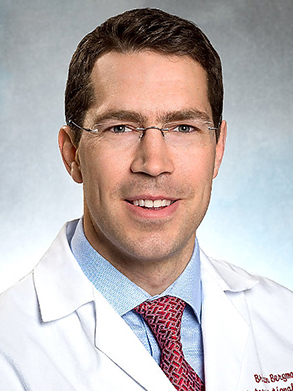After a recent meta-analysis showed no significant mortality difference between percutaneous coronary intervention (PCI) and coronary artery bypass grafting (CABG), questions on applying findings to the clinical setting are emerging.
 “Where do we go from here?” asked Brian Bergmark, MD (Brigham and Women’s Hospital, Massachusetts, USA) at the 27th TCTAP 2022 on Apr 29 while presenting a detailed analysis of the meta-analysis.
“Where do we go from here?” asked Brian Bergmark, MD (Brigham and Women’s Hospital, Massachusetts, USA) at the 27th TCTAP 2022 on Apr 29 while presenting a detailed analysis of the meta-analysis.
Published last year in the Lancet, the headline-grabbing study co-authored by Bergmark and the TIMI Study Group compared 5-year outcomes between PCI and CABG in 4,394 patients with left main coronary artery disease (LMCAD).
The study analyzed four landmark trials on revascularization - SYNTAX, PRECOMBAT, NOBLE and EXCEL - to determine a superior strategy but found no significant 5-year mortality difference between PCI and CABG (PCI 11.2% vs. CABG 10.2%, HR 1.10, 95% CI, 0.91-1.32, p=0.33). Bayesian analysis suggested a higher mortality rate with PCI, but the risk translated to an annual risk below 0.2%.
Each revascularization strategy also fared differently on other individual outcomes: PCI had higher rates of myocardial infarction (6.2% vs. 2.6%; HR 2.35; 95% CI 1.71-3.23, p<0.0001) and repeat revascularization (18.3% vs. 10.7%; HR 1.78, 95% CI, 1.51-2.10, p<0.0001). CABG had a higher risk of 1-year stroke (HR 0.37; 0.19-0.69) that slimmed down to no significant difference at 5-years (2.7% vs. 3.1%, HR 0.84, 0.59-1.21, p=0.36).
As a result, the meta-analysis, anticipated to be a “tie-breaker,” did little to alleviate tension in the clinical field. Experts, including Robert Harrington, MD (Stanford University, California, USA), commented : “There was no difference between CABG and PCI from the beginning. Instead, it depended on individual patient characteristics, values and preferences."
While useful for facilitating honest heart team conversations, Bergmark acknowledged that the unbiased study findings don’t settle decisions for patients for whom “refining the mortality difference point estimate is not the major issue.”
“For anyone involved in routine heart discussions, results limiting the mortality difference between PCI and CABG to 0.15-0.3% per year may not help conversations with patients,” Bergmark said. “In many cases, patients present priorities that existing data cannot well answer, such as an option least likely to result in dialysis.”
“Although a large randomized trial incorporating the latest surgical and PCI techniques would be ideal, realizing such a study would take substantial time considering the difficultly of achieving adequate power for mortality,” Bergmark said. “So, we need to work with what we’ve got in the meantime.”
“The real issue, then, is how to balance patient values and preferences with the few ‘hard’ trial outcomes we have on mortality and MI,” he said. “Integrating these findings into a patient-centered decision-making process will be the central challenge moving forward.”
Edited by

Junghoon Lee, MD
The Catholic University of Korea, Eunpyeong St. Mary's Hospital, Korea (Republic of)
Written by

YoonJee Marian Chu, Medical Journalist
Read BiographyThe TIMI Study Group received institutional grant support through Brigham and Women’s Hospital from Abbott, Amgen, AstraZeneca, Bayer HealthCare Pharmaceuticals, Daiichi-Sankyo, Eisai, GlaxoSmithKline, Intarcia, Ionis, Janssen, MedImmune, Merck, Novartis, Pfizer, Poxel, Quark Pharmaceuticals, Roche, Takeda, The Medicines Company and Zora Biosciences.


